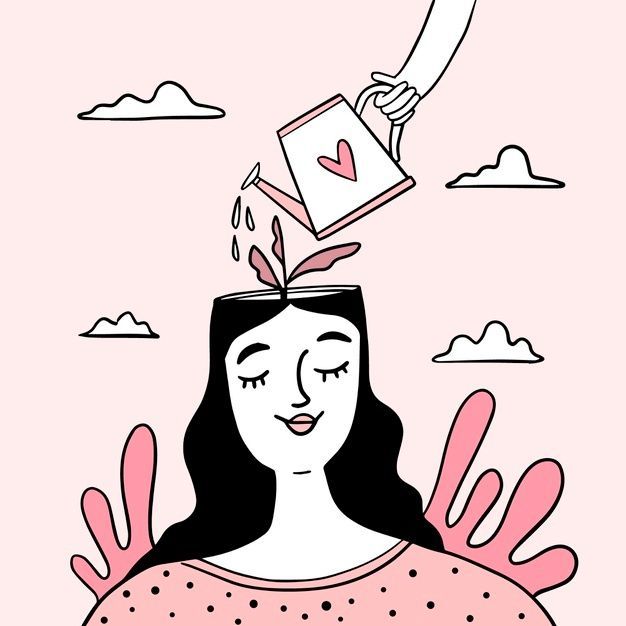Mental Health Awareness And Support Programs

Hey ladies, let’s dive into something close to all of our hearts—mental health. We talk so much about physical health, work goals, or even relationships, but how often do we actually check in on our mental health? It’s just as important (if not more!), and the good news is, there are so many awareness initiatives and support programs out there that make a world of difference. Whether you’re feeling anxious, overwhelmed, or just a little “off,” these resources can really help you get back on track. Let me break it all down for you.
First Off: Mental Health Matters—No Ifs, Ands, or Buts
Let’s be real: life is a lot. Between school, work, relationships, family, and just existing in a fast-paced world, it’s easy to feel burnt out. But here’s the thing—you don’t have to just “power through” or “get over it.” Your mental health is just as important as your physical health, and ignoring it doesn’t do anyone any good. That’s why mental health awareness programs are so amazing—they’re out here reminding us that it’s okay to not be okay and giving us tools to feel better.
So, What Are Mental Health Awareness Programs?
These are initiatives designed to educate people about mental health, break the stigma around talking about it, and connect folks to resources. Think campaigns, workshops, online resources, and even big events like Mental Health Awareness Month. They remind us that mental health struggles are common—you’re not alone—and that help is always within reach.
You might see these programs popping up in schools, workplaces, or even online. Their goal is to make it easier for people to understand what mental health really means, recognize the signs when someone might need help (including yourself), and point you in the direction of support.
Let’s Talk About Support Programs—Because Everyone Needs Backup
Okay, so awareness is great, but what about actual help? That’s where mental health support programs come in. These are the spaces and services that offer real, practical help for people dealing with stress, anxiety, depression, trauma—you name it. Here’s how they can help:
1. Therapy and Counseling Services
A lot of support programs connect you to therapists or counselors, either for free or at reduced costs. Therapy isn’t just for when you’re in crisis—it’s for anyone who wants to process their thoughts and emotions in a healthy way. It’s honestly like a safe space to unload everything without judgment.
2. Hotlines and Crisis Support
Ever heard of services like the Suicide Prevention Hotline or text lines like Crisis Text Line? These are literal lifesavers. They’re there 24/7 if you’re feeling like you can’t cope or just need someone to listen. And guess what? You don’t need to be in a full-blown crisis to call or text—they’re there for anyone who feels overwhelmed.
3. Community Support Groups
Sometimes, the best thing you can do is talk to people who get it. Support groups, whether in person or online, bring together people going through similar struggles. It’s such a relief to realize you’re not alone, and these spaces are great for sharing experiences, advice, and encouragement.
4. Workplace Mental Health Initiatives
More and more workplaces are stepping up with mental health programs—like offering free therapy sessions, mental health days, or stress management workshops. If your workplace has something like this, take advantage of it. You deserve to work somewhere that values your well-being.
5. School and College Programs
For those of you in school or college, most campuses have counseling centers or wellness programs. They might offer therapy, peer support groups, mindfulness workshops, or even apps that help you track your mental health. Don’t hesitate to check them out—they’re there for you!
Everyday Mental Health Tips (Because Programs Are Just Part of It)
While these programs are awesome, there are also little things you can do every day to take care of your mental health. Here are some of my go-to tips:
- Talk It Out: Whether it’s with a friend, family member, or therapist, don’t bottle up your feelings. Talking is so healing.
- Set Boundaries: It’s okay to say “no” to things that drain you. Protecting your energy is a form of self-care.
- Move Your Body: Exercise, even if it’s just a walk, can do wonders for your mood. Endorphins are real, y’all!
- Get Enough Sleep: I know we all love a late-night binge, but sleep is a game-changer for mental health.
- Practice Mindfulness: Whether it’s meditation, journaling, or just taking a few deep breaths, slowing down can help you feel more grounded.
How to Find These Programs
If you’re wondering where to start, let me make it easy for you. There are tons of national organizations like the National Alliance on Mental Illness (NAMI), Mental Health America (MHA), and online platforms like BetterHelp or Talkspace. These places offer everything from free resources to affordable therapy options.
If you’re in school or work, check what mental health resources are available there. And don’t forget to look local—community centers and nonprofits often run free support groups or wellness programs.
Final Thoughts
Here’s the takeaway, ladies: taking care of your mental health is not a luxury—it’s a necessity. Whether you’re just having a rough week or you’ve been struggling for a while, there’s always help out there. You’re not weak for needing it. In fact, reaching out is one of the bravest things you can do.
So, let’s keep looking out for each other, checking in, and reminding ourselves that we deserve to feel good—body, mind, and soul. You’re never alone in this, and together, we’ve got this. 💖
